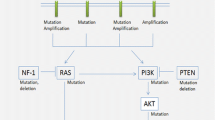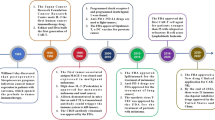Summary
To evaluate the effect of wild-type p53 gene on the growth and radiotherapeutic sensitivity of human glioma cells, plasmid PC53-SN3 carrying wild-type p53 gene was transfected into U251 cells, p53 gene expression in transfected cells was detected by RT-PCR, and the cell growth inhibition and apoptosis in the absence or presence of irradiation were assessed by MTT and flow cytometry. The transfection of p53 gene into U251 cells was confirmed by RT-PCR. MTT showed that p53 gene alone induced strong inhibitory effect on the growth of U251 cells (inhibition rate (IR): (79.60±5.69) %). The killing effect of irradiation alone on U251 cells was not strong (IR: (17. 06±4.35) %, (17.39±1.67) %, (18.73±4.68) %) and increased with the irradiation doses (3, 6, 9 Gy). When combined treatment of wild-type p53 gene transfection and irradiation was used, the effect was significantly increased (IR: (80.60±5.35) %, (90.30±1.67) %, (91.30±2.01) %). The apoptosis rate of U251 cells induced by p53 gene transfection was 17.38%. The rate induced by irradiation increased (4.61%, 4.84%, 5.40%) with the irradiation doses (3, 6, 9 Gy). The apoptosis rate was also significantly increased (17.80%, 20.03%, 22.34%) after combined treatment of p53 and irradiation with different doses (3, 6, 9 Gy). It is concluded that wild-type p53 gene and irradiation could result in synergistic inhibitory effect on the growth of human glioma cells.
Similar content being viewed by others
References
Frankel R H, Bayona W, Koslow Met al. p53 mutations in human malignant gliomas: Comparison of loss of heterozygosity with mutation frequency: Cancer Res, 1992, 52:1427
Greenblatt M S, Bennett W P, Holistein Met al. Mutations in the p53 tumor suppressor gene: clues to cancer etiology and molecular pathogenesis. Cancer Res, 1994, 54:4855
Lang F F, Yung W K A, Raju Uet al. Enhancement of radiosensitivity of wild-type p53 human glioma cells by adenovirus-mediated delivery of the p53 gene. J Neurosurg, 1998, 89:125
Gomez-Manzano C, Fueyo J, Kyritsis A Pet al. Adenovirus-mediated transfer of the p53 gene produces rapid and generalized death of human glioma cells via apoptosis. Cancer Res, 1996, 56:694
Lane D P. p53, guardian of the genome. Nature, 1992, 358:15
Yasumoto J, Imai Y, Takahashi Aet al. Analysis of apoptosis-related gene expression after X-ray irradiation in human tongue squamous cell carcinoma cells harboring wild-type or mutated p53 gene. J Radiat Res, 2003, 44:41
Huh J J, Wolf J K, Fightmaster D Let al. Transduction of adenovirus-mediated wild-type p53 after radiotherapy in human cervical cancer cells. Gynecol Oncol, 2003, 89:243
Author information
Authors and Affiliations
Additional information
XIANG Wei, male, born in 1973, M. D., Ph.D.
Rights and permissions
About this article
Cite this article
Wei, X., Xianli, Z. & Hongyang, Z. Effect of wild-type p53 gene transfection on the growth and radiotherapeutic sensitivity of human glioma cells. J. Huazhong Univ. Sci. Technol. [Med. Sci.] 25, 448–450 (2005). https://doi.org/10.1007/BF02828220
Received:
Issue Date:
DOI: https://doi.org/10.1007/BF02828220




